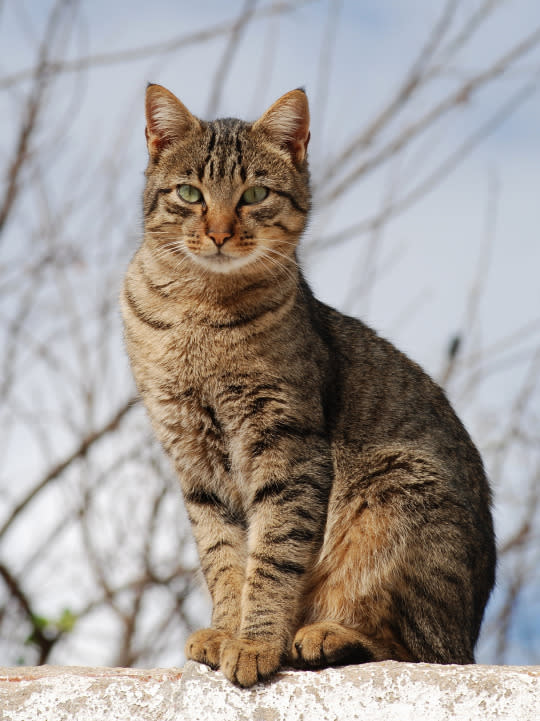Cats Are More Independent Than Dogs And Don’t Miss Absent Owners, New Study Reveals

Alvesgaspar via Wikipedia Commons
It’s another blow for the felines in the long running cats vs dogs feud.
A new study claims that our moggy friends don’t form the same attachment to their owners as their four legged pet counterparts and show no signs of separation anxiety when their owner leaves.
This confirms the widely held belief that cats are much more aloof and independent than dogs, who see their owners as a source of safety and security.
In fact, the new study, conducted by Daniel Mills, Professor of Veterinary Behavioural Medicine at the University of Lincoln, even claims that any noise a cat makes when the owner leaves home is more likely to be out of boredom or frustration.
“Previous research has suggested that some cats show signs of separation anxiety when left alone by their owners, in the same way that dogs do, but the results of our study show that they are in fact much more independent than canine companions,” said Professor Mills.
“It seems that what we interpret as separation anxiety might actually be signs of frustration.”

In better news for defiant cat owners, Professor Mills said it’s acknowledged that cats are more social and capable of shared relationships than previously thought.
However, his study signals that cats are much more autonomous in their social relationships than dogs and don’t necessarily depend on others for a sense of protection.
To test out the bond between cat and owner, Professor Mills developed a version of the Ainsworth Strange Situation Test (SST). The test has previously been used to demonstrate a bond of ‘secure attachment’ between children and dogs to their primary carer, where the carer is seen as the focus of safety and security in a threatening situation.
Cats were put to the test by Professor Mills and RSPCA colleague Alice Potter with 20 felines being placed with their owner, a stranger and on their own in an unfamiliar environment.
The experiment then examined the amount of contact sought by the cat, the level of passive behaviour, and any distress signals caused by the absence of the owner.
“Although our cats were more vocal when the owner rather than the stranger left, we didn’t see any additional evidence to suggest that the bond between a cat and its owner is one of secure attachment,” said Professor Mills. “This vocalisation might simply be a sign of frustration or learned response, since no other signs of attachment were reliably seen.”
During the experiment, Professor Mills said cats did not choose to stay close to their primary carer, signal distress when they’re separated from them or even “demonstrate pleasure when their attachment figure returns.”
He explained: “For pet dogs, their owners often represent a specific safe haven; however it is clear that domestic cats are much more autonomous when it comes to coping with unusual situations.
“Our findings don’t disagree with the notion that cats develop social preferences or close relationships, but they do show that these relationships do not appear to be typically based on a need for safety and security.”
There could be a more biological reason for the findings however, given the nature of the cat species as a largely “independent solitary hunter,” the researchers say.
The findings are published in the journal Plos One.

 Yahoo News
Yahoo News 
